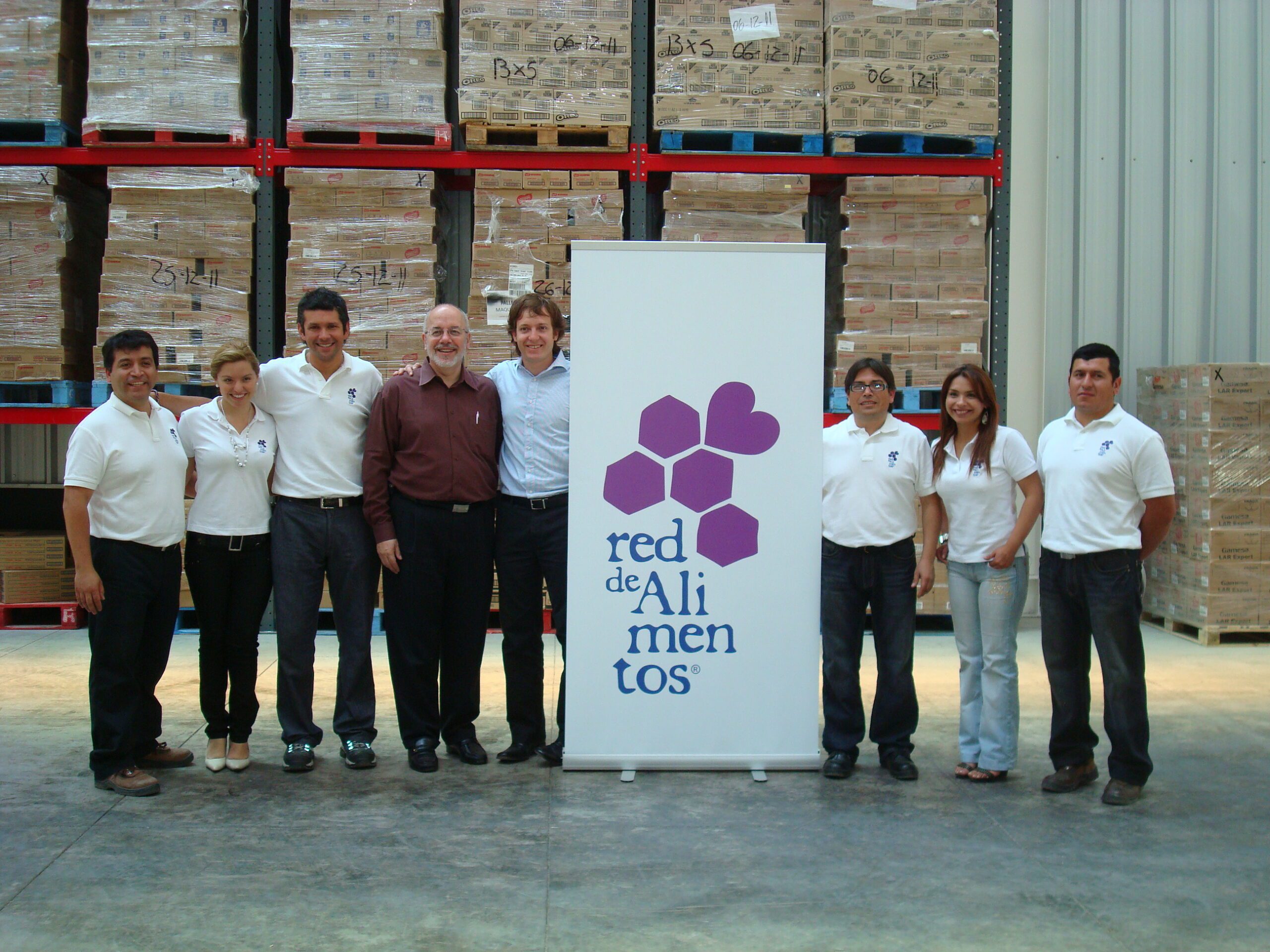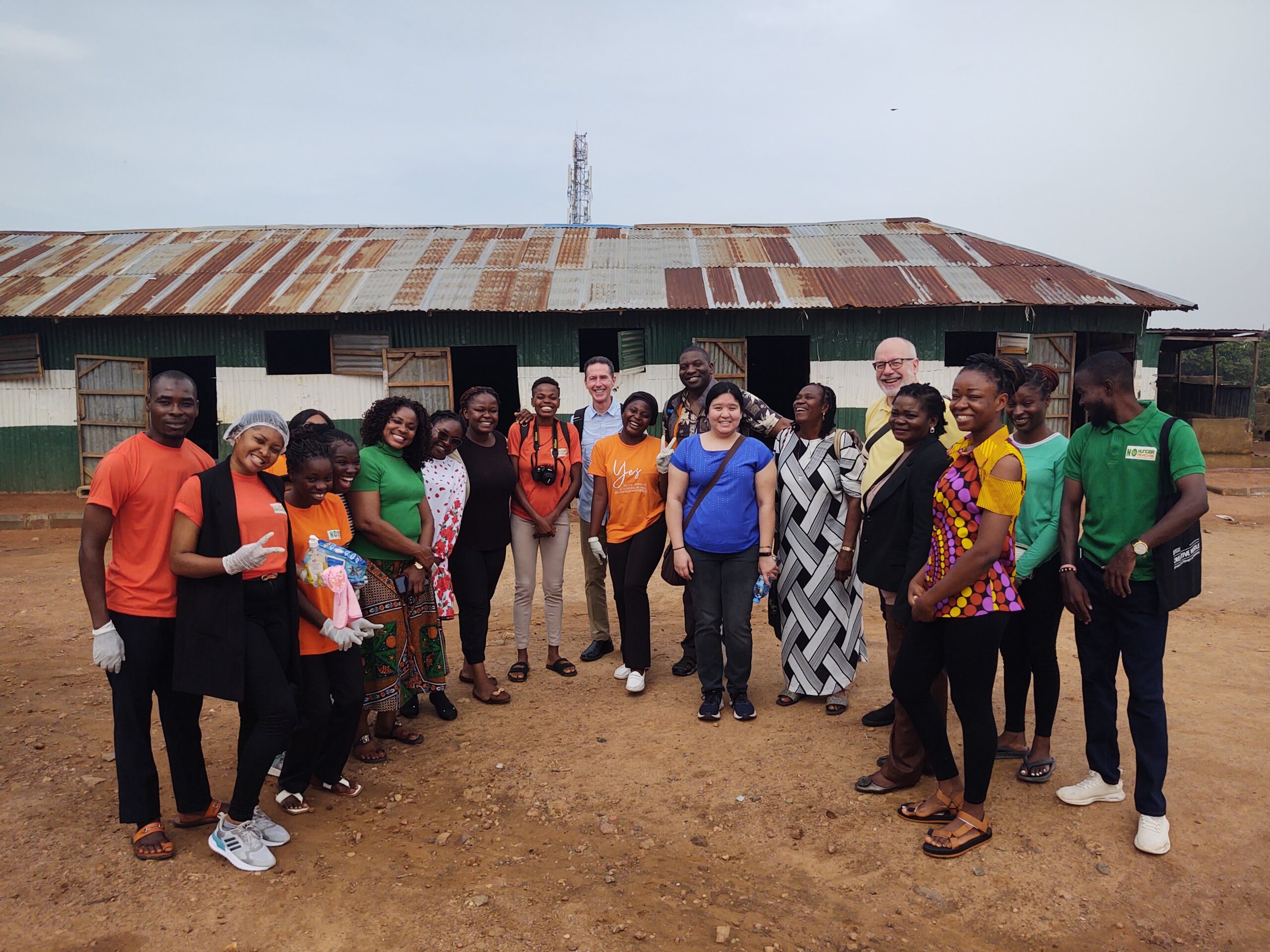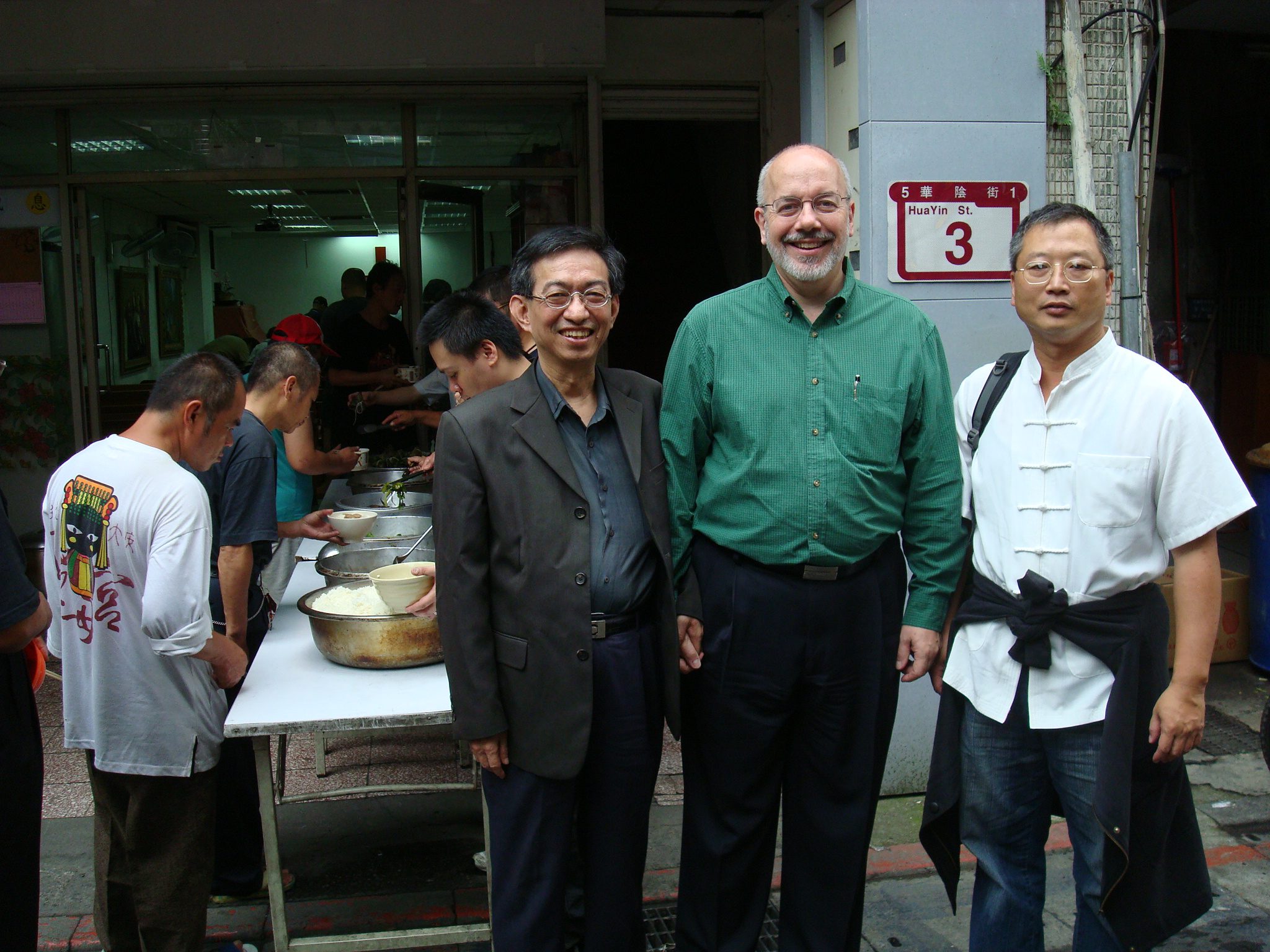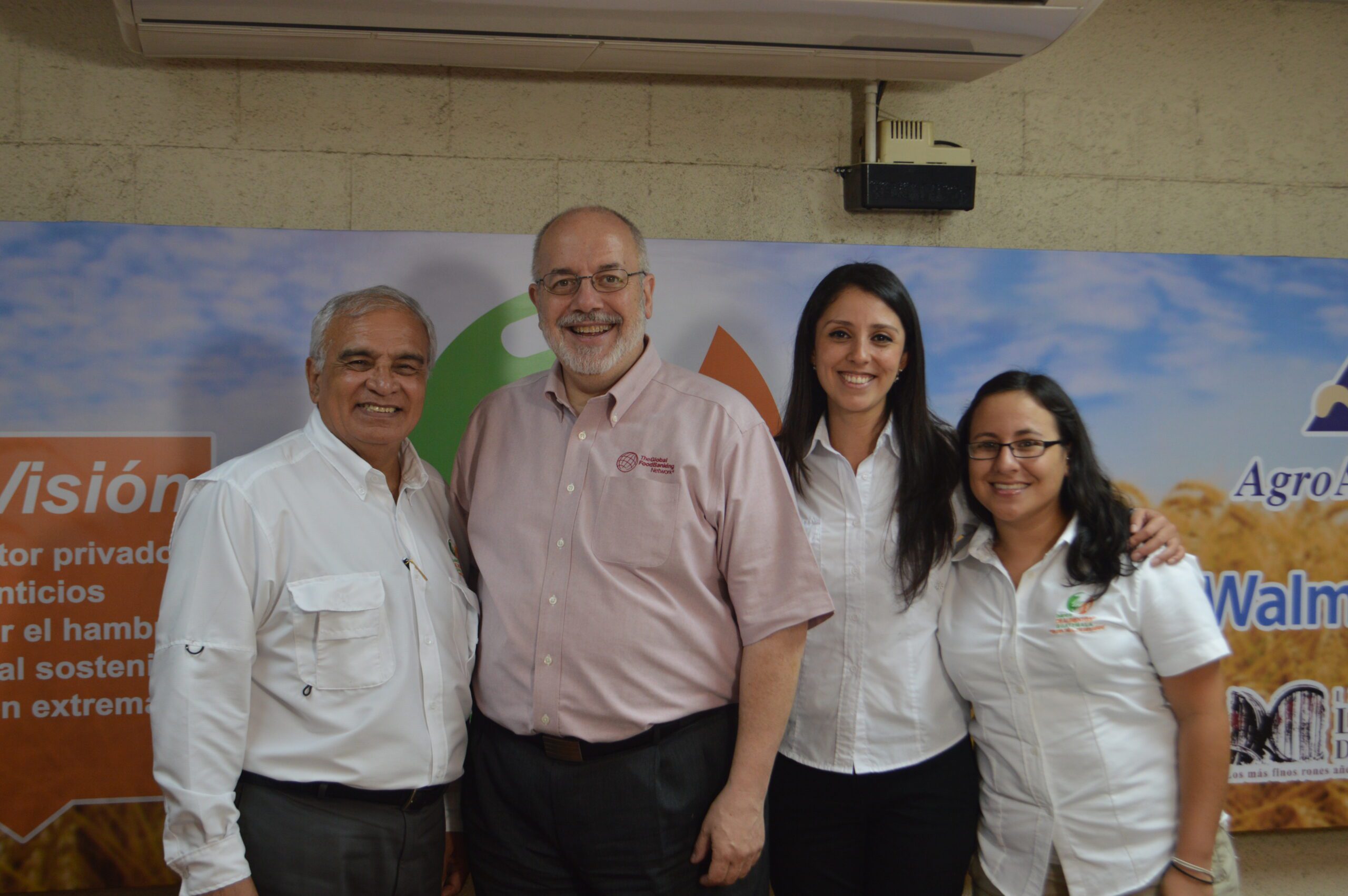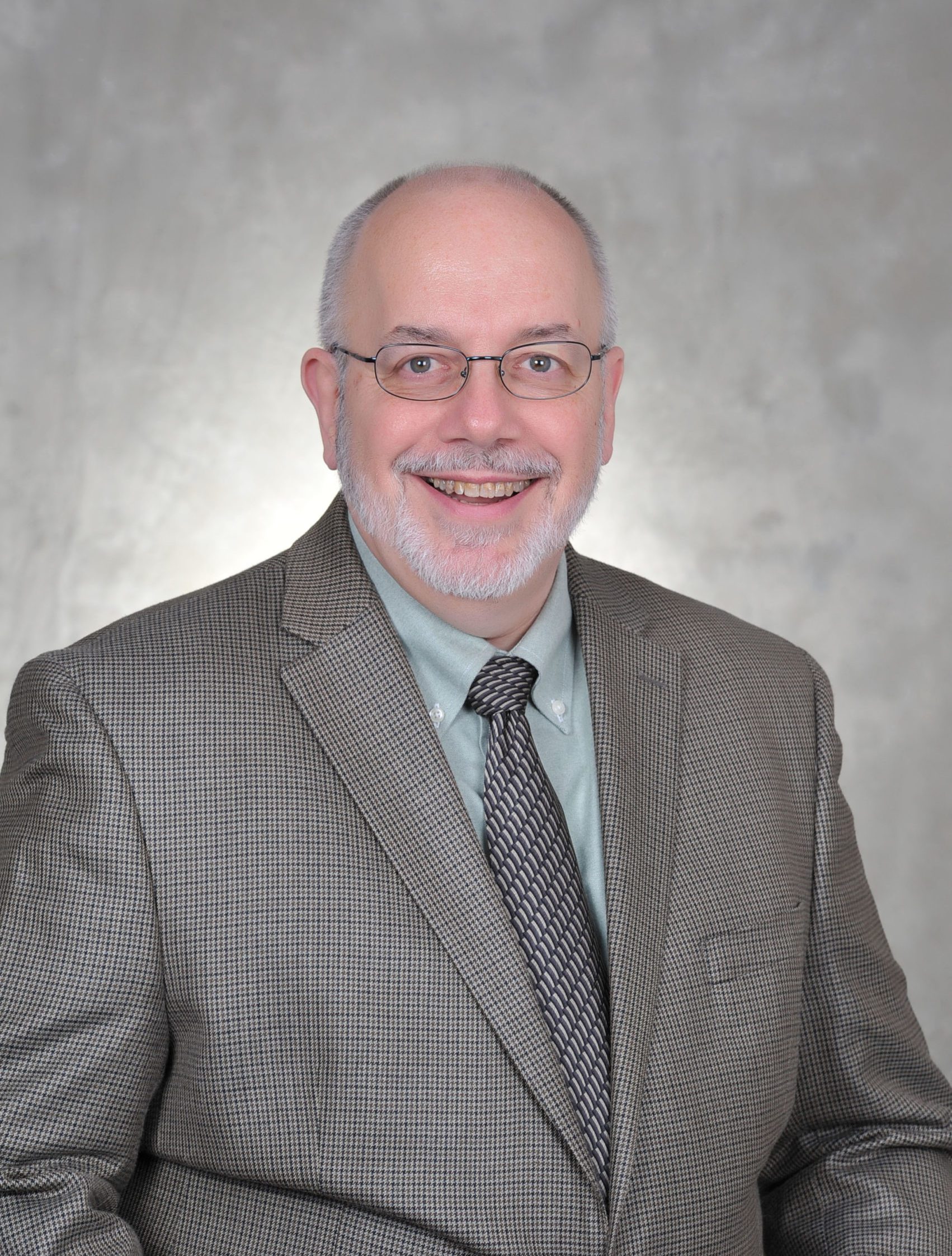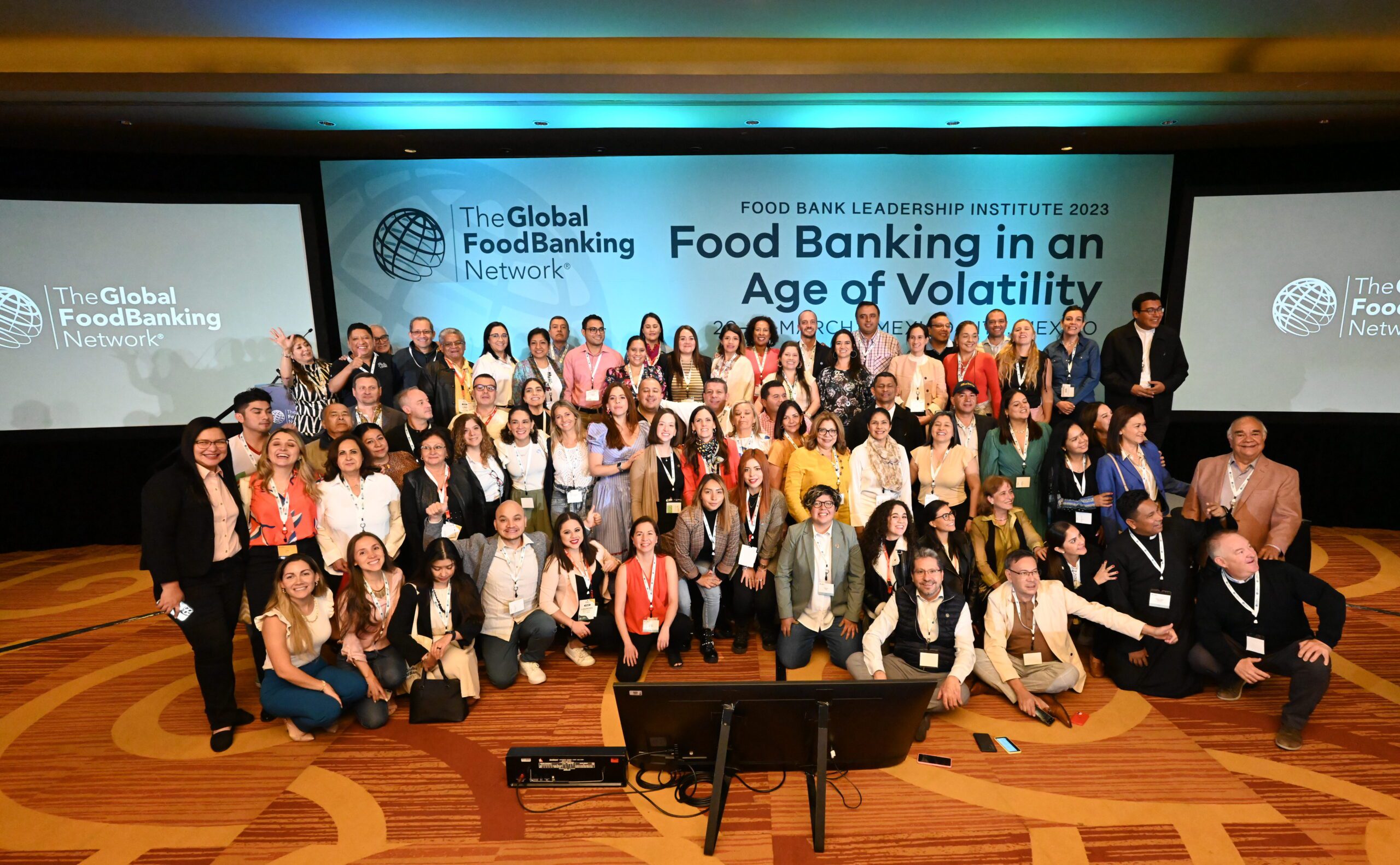Chris Rebstock devoted his exemplary, decades-long career to food banking, which included co-founding The Global FoodBanking Network in 2006. Looking back, Rebstock says he’s proudest of how GFN has evolved with a sense of retrospection.
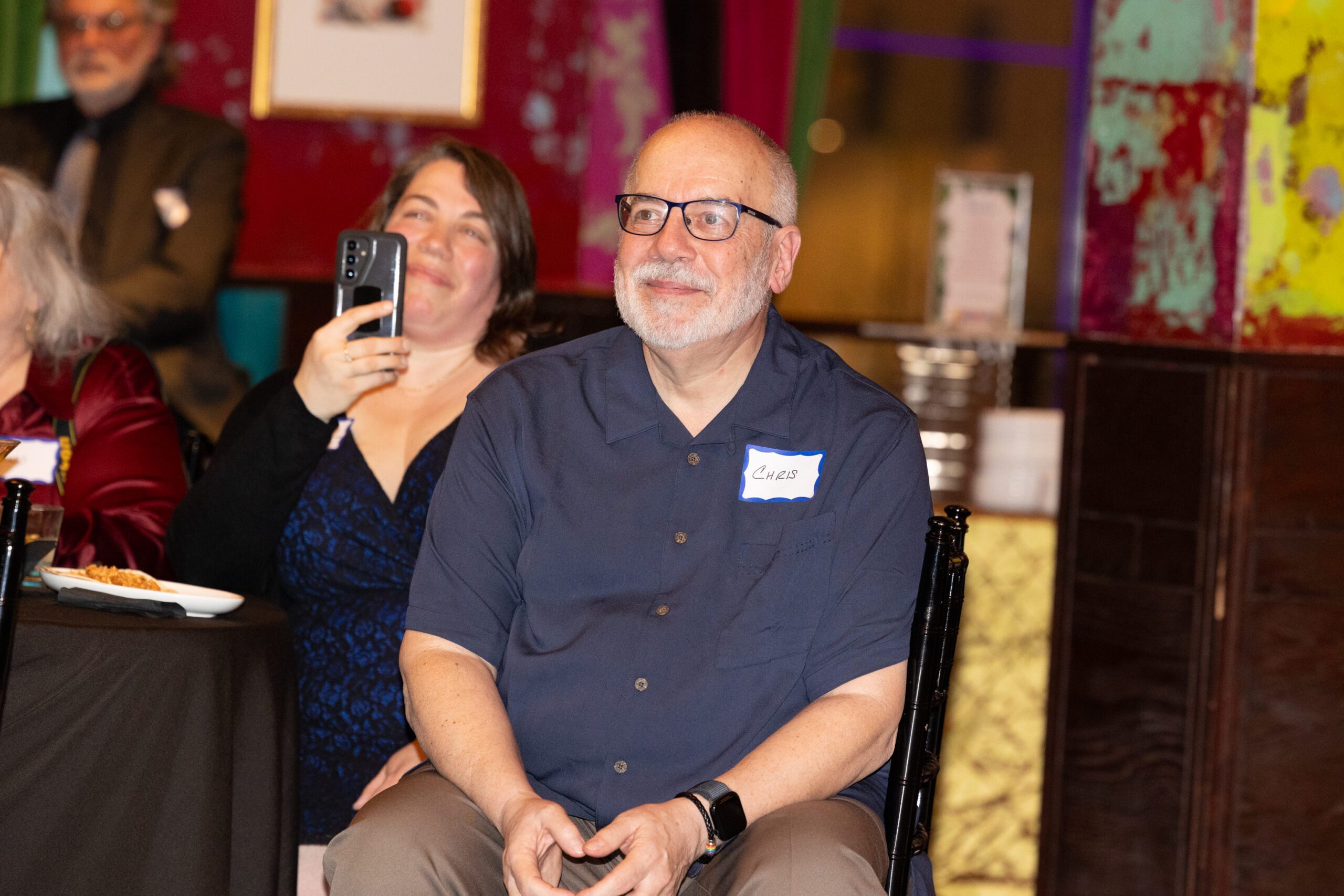
“In the first 10 years or so, things were difficult — primarily financially difficult — and at a couple of points, I was afraid we weren’t going to survive,” Rebstock said. At the same time, GFN was adding food banks into the network rapidly, perhaps too rapidly.
“We weren’t focusing on the depth of our engagement,” he said. “Under the new leadership of Lisa Moon, we realized we were very broad but very shallow, in a way we didn’t see before.”
GFN entered a six-month planning process, focusing on temporarily slowing expansion and focusing on depth, deepening the relationship with food banks. “Our staff put extra emphasis on working with food banks in the network to understand what their most pressing needs were, [what could] make them more efficient and effective in their own communities,” Rebstock said.
Based directly on engagement with food bank members, GFN developed specific training, grantmaking and other resources to help make the member food banks more successful.
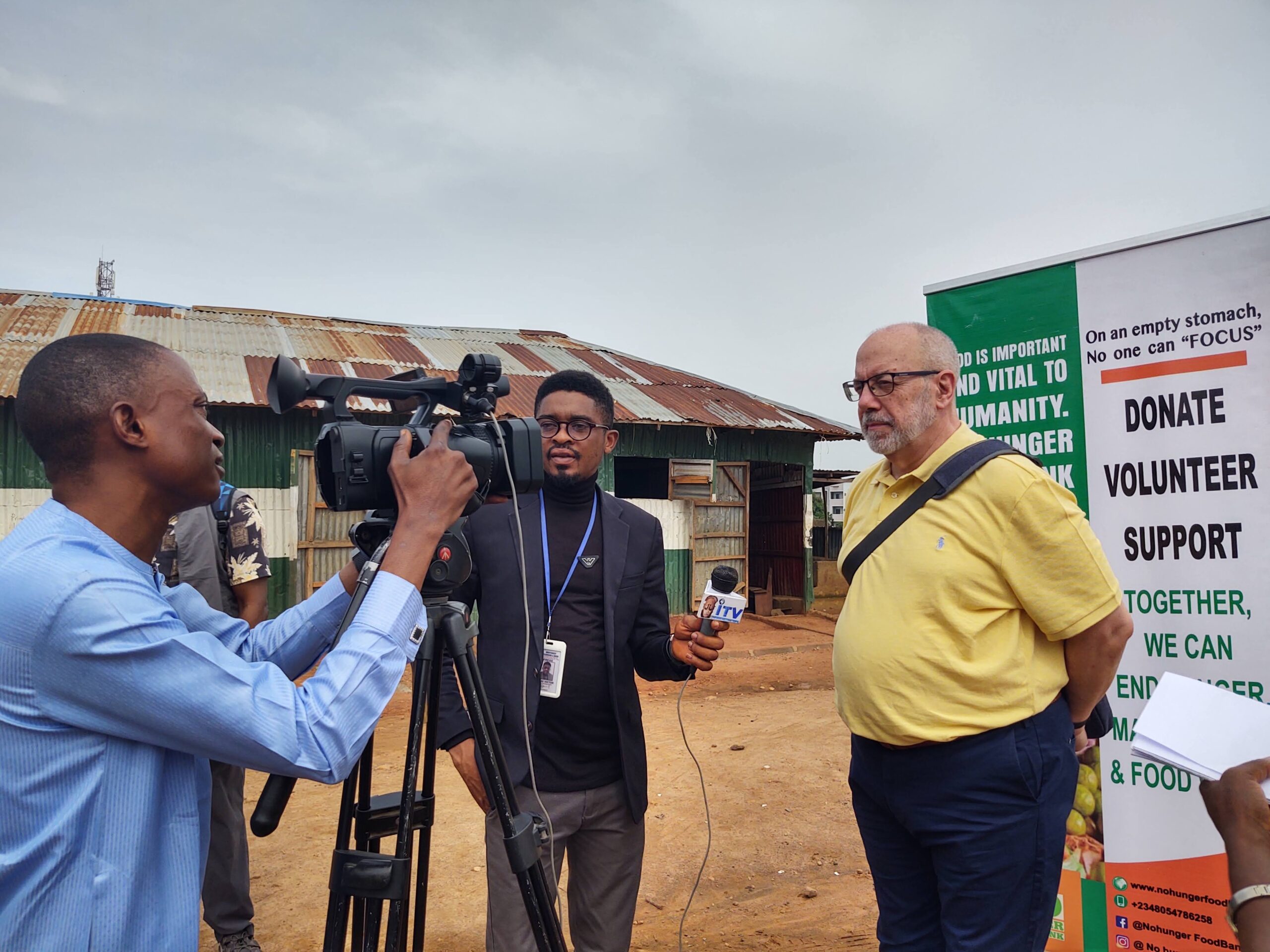
“And we see the results of that [way of thinking] today,” Rebstock said. “During COVID, with all the organizations we heard about that were failing and falling apart because of the implications of the pandemic, we never lost one food bank.
“We were able to assist every one of our members to rapidly expand their service to cope with the incredible increase in demand in each of their communities.”
Rebstock added that GFN has since gone through similar introspection to continually refine what we do, all in the name of making the network stronger.
“It’s not about pushing GFN,” he said. “It’s about pushing food banking.”
Responding to a Need
When the seeds of GFN were planted, Rebstock worked for a network of U.S. food banks, America’s Second Harvest, now called Feeding America.
One day at their offices in Chicago, Rebstock was visited by a priest from Argentina who represented a group that wanted to start a food bank in Argentina. After a lengthy chat, Rebstock sent stacks of helpful documents back with the man. The two kept in close contact, and after the food bank was up and running, the group asked if Rebstock could put them through the same certification process Feeding America provided for U.S. food banks. The thought process was that, if the Buenos Aires food bank could tell U.S. companies doing business in Argentina that they upheld the same stringent standards as the food banks they are already supporting back home, then they would be more likely to support their efforts.
With the encouragement of Feeding America, Rebstock obliged. Only a few years later, the group had added eight more food banks, and Rebstock helped them put together a plan to create a national network — what would become Bancos de Alimentos Argentina.
In this instance, Rebstock was able to help jump start a food bank a continent away from his desk in Chicago. But there were too many inquiries coming in for Rebstock to respond to, without taking away from his focus on food banks in the United States.
“We were receiving numerous requests from other countries, saying ‘We learned about what you do, we want to replicate that, can you help us?’” Rebstock said. “And not just us, but our food banking friends in Canada and Mexico.”
All three food bank networks — Bancos de Alimentos de México (BAMX), Feeding America and Food Banks Canada — were domestic organizations that didn’t have the resources to focus internationally. But it was clear a more organized and effective response to the inquiries was necessary.
Leadership from those three organizations, as well as Bancos de Alimentos Argentina a little later on, came together to think about how a new organization could help others adapt the food bank model to fit different communities and contexts.
The Global FoodBanking Network was born out of those conversations, and three people with strong Feeding America ties — Bob Forney, former Feeding America president; Bill Rudnick, former Feeding America board chair; and Rebstock — were tasked with building the organization from the ground up.
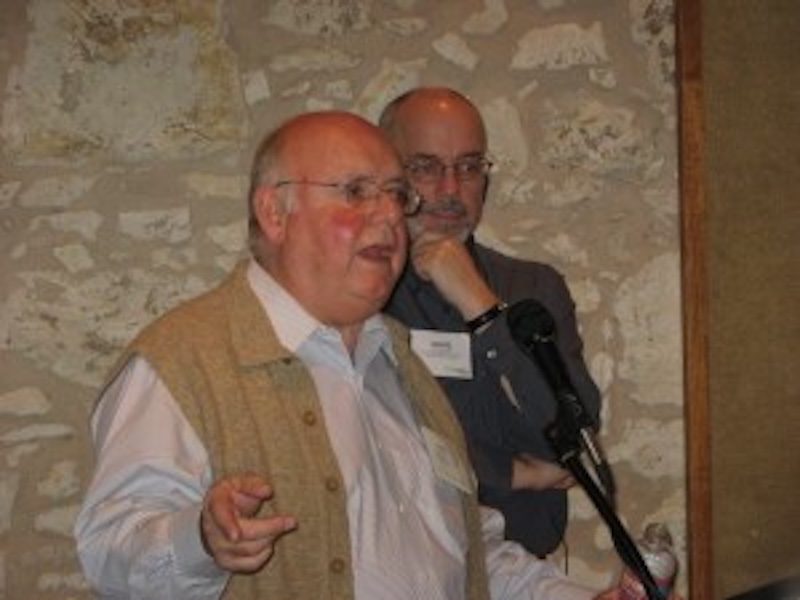
Building Trust
“I knew because of the Argentina experience, I wanted to be involved,” Rebstock said, acknowledging that the prospect of starting an international organization from scratch was more than a little intimidating.
“It was daunting in a number of different ways,” he said. In the beginning, Forney and Rebstock were GFN’s only two employees. And they had their work cut out for them, as they needed to conduct quite a bit of research to identify food banks around the world, approach them, then pitch their vision for how the organization could support and generate resources for them.
“We had three natural members from our founding food bank partners — Canada, Mexico and Argentina,” Rebstock said. “The most daunting part was going out and meeting with [other] existing food banks that we identified and figuring out how to begin building partnerships with them and what those partnerships would look like.”
In the first couple of years, the response from food banks was mixed.
FareShare in the United Kingdom was one of the first food banks visited, and GFN certified the organization only a year and a few months after its founding. But not every food bank was as enthusiastic, and some did not immediately see the benefits of membership. Some feared GFN might try to assert some measure of authority or change things that were already working.
Rebstock emphasizes that it took time to build trust and prove to food banks that there was value in joining the network.
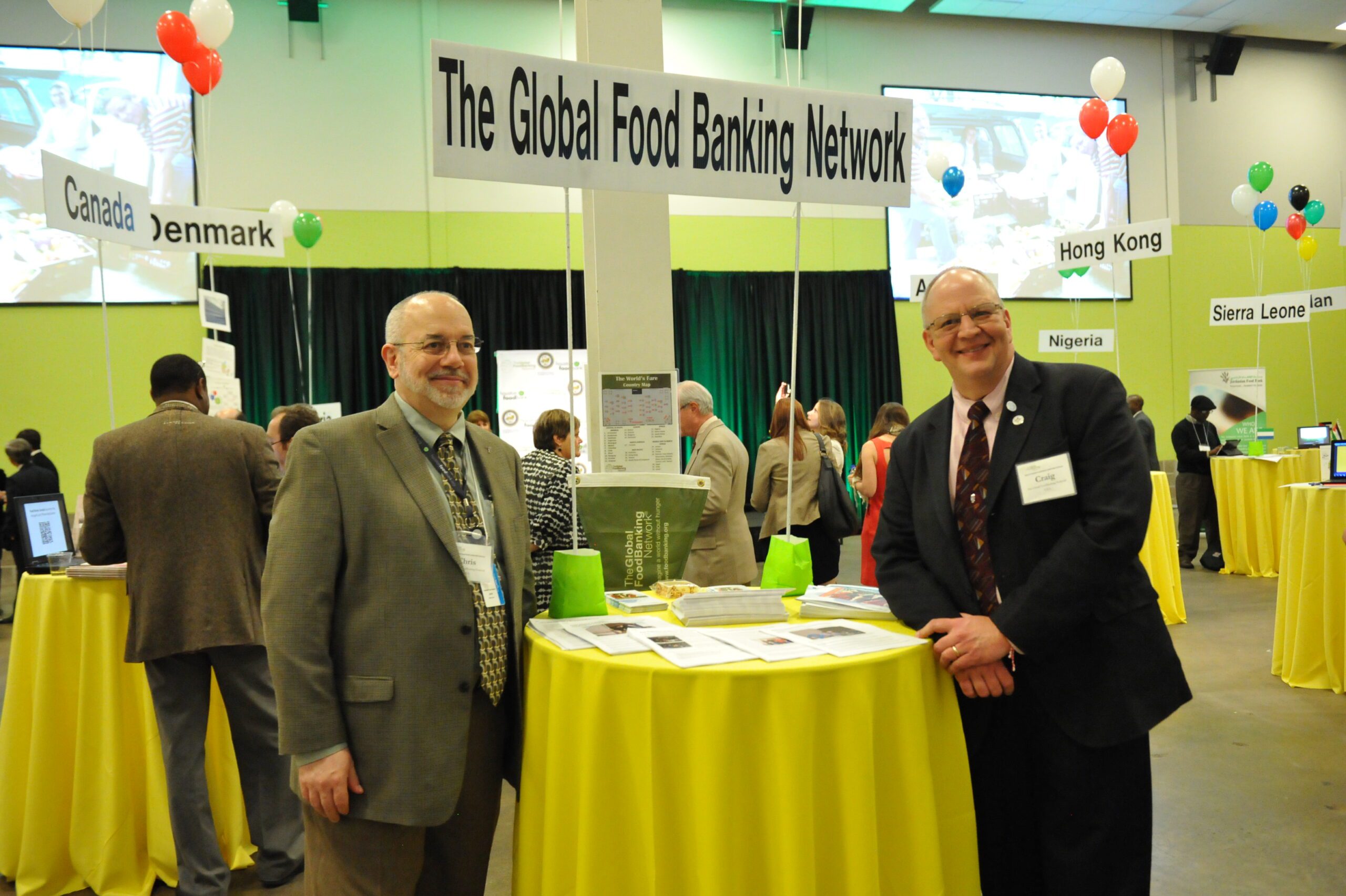
“After we had a couple of years of operation under our belt, we could point to specific successes in helping establish food banks or helping existing food banks become more efficient or effective. Other food banks starting to say, oh, this makes a lot of sense.”
A Happy Accident
Now, almost two decades later, The Global FoodBanking Network that Rebstock helped build has grown to include more than 50 food bank partners that serve more than 40 million people. At the end of 2024, Rebstock retired after an accomplished career providing support to people facing hunger, although he graciously continues to support GFN in a consultative role.
Although perhaps no one other than the founder of food banking, John van Hengel, has contributed more to the food banking movement than Rebstock, he says he became a food banker by accident.
In the late 1970s, while recovering from a back injury in his hometown of Pittsburgh, Rebstock received a call from an old friend who was starting a soup kitchen downtown.
“My friend said, ‘You should come down and help us. It will get you out of the house,’” recalled Rebstock. “I started volunteering at this soup kitchen every week and learned about the extent of hunger in southwest Pennsylvania after the steel industry fell apart.”
After volunteering regularly, one of the soup kitchen’s partner organizations, the Hunger Action Coalition, hired Rebstock to work on their programs team. Some months later, he learned representatives from the organization had met with van Hengel to discuss the concept of food banking, which had only been around for about 10 years at the time.
“They came back fired up, wanting to start a food bank in Pittsburgh,” Rebstock recalled. “When I heard about the concept, I thought, ‘Wow, that really makes sense.’”
At his request, Rebstock was placed on the committee working to put the food bank together. When the Greater Pittsburgh Community Food Bank launched in 1980, he became a Board member. Only two years later, though, the executive director left. Rebstock resigned his position on the Board and took on the role for the next five years.
“I was absolutely unqualified and knew nothing about the business, other than what I had learned helping plan it,” Rebstock said. But he learned quickly on the job.
Rebstock’s leadership at the Greater Pittsburgh Community Food Bank led to an opportunity with Feeding America. Rebstock spent 20 years there, providing technical assistance and certification audits to food banks and eventually serving as director of field services and then vice president of network services. And that’s where Rebstock and many others started conversations about creating a global network of food banks.
“It was a very happy accident,” Rebstock said about falling into food banking.
Though he greatly loved his time at Greater Pittsburgh Community Food Bank and Feeding America, Rebstock said that co-creating GFN and building it over the last 19 years is the part of his career that is closest to his heart.
“Seeing our network expand to the number of countries we’re in now and seeing the impact those food banks have in their communities has been the greatest honor of my life.”
